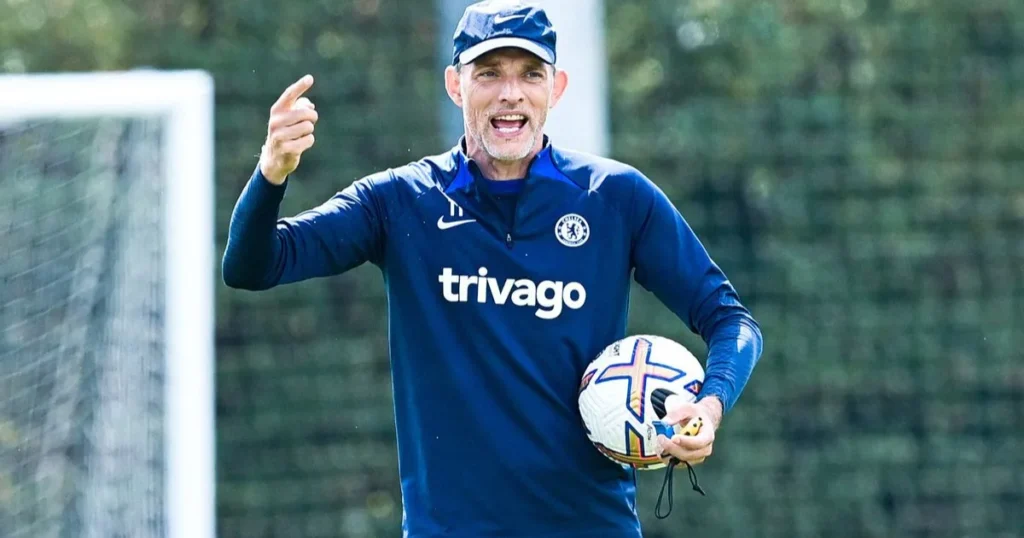François Tuchel is a name that resonates deeply within football circles, particularly among PSG supporters. Known for his innovative tactics and ability to adapt to high-pressure situations, Tuchel has made a significant impact on the sport. But how did he rise through the ranks to become one of football’s most respected managers? This post dives into his exceptional career, exploring his early beginnings, coaching philosophy, key strategies, and the legacy he has built.
Early Life and Career Beginnings
François Tuchel was born into a modest background, growing up in a small town where football was more than just a pastime—it was a way of life. His early connection with the sport was through playing as a defender, which allowed him to observe game dynamics up close. However, an early retirement due to injury pivoted his career toward coaching.
Tuchel began his coaching career at youth clubs, making his mark by developing young talent and emphasizing a tactical understanding of the game. His first significant stint as a manager came with [Club Name], where he demonstrated his ability to build a cohesive team from scratch, earning the admiration of players and peers alike.
Coaching Philosophy and Style
Tuchel is often regarded as a tactical innovator. His coaching philosophy revolves around adaptability, team cohesion, and an analytical approach to the game. Unlike many managers who stick rigidly to a single formation, Tuchel tailors his tactics to suit the opponent’s strengths and weaknesses.
What sets him apart is his focus on pressing high up the field, combined with fluid positional play. His teams are characterized by their ability to control possession, counter-press effectively, and exploit spaces in the opponent’s defense. This philosophy has not only delivered results but has also earned him a reputation for playing an aesthetically pleasing style of football.
Key Strategies and Tactics
Tuchel’s strategies often include a mixture of traditional and cutting-edge methods. Here are some of his key tactics:
- Dynamic Formations: Tuchel doesn’t bind himself to a single tactical structure. Depending on the match, his team might play in a 4-3-3, 3-4-3, or even a hybrid 4-2-2-2 formation.
- High Pressing Game: His teams apply relentless pressure on the opponent’s backline, forcing turnovers and creating counter-attacking opportunities.
- Intelligent Rotations: Tuchel ensures every player in the squad is capable of stepping into multiple roles, which has been crucial in long seasons with packed schedules.
- Set-Piece Proficiency: Under his management, set-pieces—both offensive and defensive—are meticulously planned and executed, making them a consistent source of goals.
Major Achievements and Titles
Tuchel’s managerial abilities have earned him numerous accolades. Some of his major achievements include:
- National League Titles: Tuchel led his teams to domestic league triumphs in highly competitive settings, showcasing his tactical mastery over a full season.
- Prestigious Cup Wins: Known for excelling in elimination tournaments, Tuchel has numerous cup victories under his belt, including domestic and international competitions.
- Champions League Glory: One of the defining moments of his career came when he guided PSG to the final stages of the UEFA Champions League, solidifying his legacy as a world-class manager.
His ability to achieve these milestones with multiple clubs demonstrates not just talent, but also an ability to adapt to different environments and challenges.
Impact on Football and PSG
Tuchel’s tenure at PSG was particularly impactful. He inherited a squad brimming with talent, including superstars like Neymar and Kylian Mbappé. However, managing star-studded teams comes with its unique set of challenges. Tuchel succeeded in getting the best out of his players, turning PSG into a dominant force in French football and a serious contender in Europe.
Beyond the trophies, Tuchel influenced PSG’s identity as a club. Under his guidance, PSG moved beyond being a team that relied solely on individual brilliance. Instead, they became a tactically astute outfit capable of dominating elite-level opposition.
Controversies and Challenges
No career is without setbacks, and Tuchel’s time in the spotlight has seen its share of controversies. At PSG, his relationship with the club’s hierarchy was often reported to be strained, particularly around transfers and player selection. Despite his success on the pitch, these tensions ultimately led to his departure.
Additionally, managing egos in a star-heavy squad posed a significant challenge. Balancing team unity while keeping high-profile players happy required Tuchel to display exceptional interpersonal skills. His ability to maintain focus in the face of such challenges is a testament to his mental resilience.
Legacy and Future Prospects
François Tuchel’s legacy is marked by his ability to evolve with modern football while staying true to his principles. He has inspired countless players and fellow coaches, leaving a lasting imprint on every team he has managed. Whether it’s his tactical ingenuity or his drive to win, Tuchel remains a figure of admiration.
Looking forward, Tuchel’s career trajectory is bound to reach even greater heights. Clubs across Europe are always on the lookout for managers who combine technical expertise with a winning mindset, and Tuchel fits the bill perfectly. Who knows which football giant he’ll lead next?
The Final Whistle on François Tuchel
François Tuchel is a manager who embodies the spirit of football. From his humble beginnings to his rise as one of the most respected managers in the sport, his story offers lessons on perseverance, adaptability, and the pursuit of excellence. Whether you’re a die-hard PSG fan or just someone who appreciates the beauty of football, Tuchel’s contributions to the game are undeniable.
For fans eager to see what’s next for this tactical mastermind, keep an eye on the sidelines—Tuchel’s best may still be yet to come.





